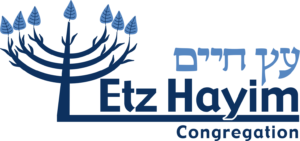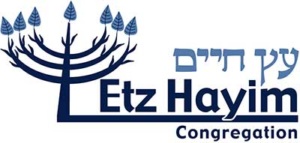The Challenges of Routineism
By Rav Natan
Tevye: A fiddler on the roof. Sounds crazy, no? But in our little village of Anatevka, you might say every one of us is a fiddler on the roof, trying to scratch out a pleasant, simple tune without breaking his neck. It isn’t easy (…) And how do we keep our balance? That I can tell you in one word… Tradition.
Tradition, tradition… tradition
Tevye continues: Because of our traditions, we’ve kept our balance for many, many years. Here in Anatevka we have traditions for everything… how to eat, how to sleep, even, how to wear clothes. For instance, we always keep our heads covered and always wear a little prayer shawl… This shows our constant devotion to God. You may ask, how did this tradition start? I’ll tell you – I don’t know. But it’s a tradition…
When I hear Tevye’s lament in Anatevka, I wonder: How could it be that they suffered so much in that little village, just for the sake of tradition?
Last night, we discussed the challenge of religious extremism and how our own tradition evolves through time and space.
What is Tevye’s tradition that make Anatevka so important to him?
While we may embrace certain traditions, how can we rely exclusively on them as the reason for our entire Jewish identity?
I believe that religion has failed to provide a moral compass and update itself to our reality, falling into a trap of becoming stale, mere rituals and routine without values and meaning to the modern believer. Just a “tradition”.
How many times have you done something just because you thought you should do it, without processing the values and meanings of that religious act?
Let’s be honest with each other for a moment. How difficult is to be Jewish today?
Anti-Semitism is on the rise. Synagogue memberships models are outdated. Our relationship with Israel has never been questioned as it is in our days. COVID has challenged us to reinvent ourselves, changing everything we knew about the Jewish community. It’s very stressful to be Jewish today.
Saying that you are stressed or complaining because you are Jewish, is not just a joke anymore.
I learned from my teachers that during the past decades, the presence of the Holocaust in our collective memory was enough to hold us together. Letting Judaism die would be a victory for the Nazis, therefore, we must stay together and practicing our traditions, even if we have no idea why we do them or how they can me a positive force in our lives.
My generation is learning that just “Tradition” or the ever-present memory of the Holocaust is not enough.
We must give a positive answer to why we should remain Jewish and practice Judaism. This challenge was called religious routine-ism, by Rabbi Sharon Brous. She says: “This is when our institutions and our leaders are stuck in a paradigm that is rote and perfunctory, devoid of life, devoid of vision and devoid of soul.”
The metaphor she uses is the difference between the emotional moment of the chuppah, when the couple “make holy the love that they found for one another” in comparison to “the experience of the sixth or seventh anniversary.”
She says: “And if you’re lucky enough to make it 16 or 17 years, if you’re like most people, you probably wake up in the morning realizing that you forgot to make a reservation at your favorite restaurant and you forgot so much as a card, and then you just hope and pray that your partner also forgot.”
Religion is meant to be like the anniversary, a framework, a container, to remind us about the love we shared under the chuppah years ago.
The British philosopher Alain de Bottom spoke at a TED Talk called “Atheism 2.0”. He shared his ideas about what values and practices the secular world should absorb from religions. One of the messages he presents is the importance of “encountering” with ideas and values that enrich our lives in an organized and constant way.
“What religions do is to arrange time. All the major religions give us calendars. What is a calendar? A calendar is a way of making sure that across the year you will bump into certain very important ideas. (…) Now we (atheists) don’t think that way. In the secular world we think, “If an idea is important, I’ll bump into it. I’ll just come across it.” Nonsense, says the religious world view. Religious view says we need calendars, we need to structure time, we need to synchronize encounters. This comes across also in the way in which religions set up rituals around important feelings.”
https://www.ted.com/talks/alain_de_botton_atheism_2_0
In the modern Jewish World, it is the forms of secular life that generally govern our lives. Our Jewish experience is limited to the synagogue space, the main holidays of our calendar, and the lifecycle events.
In this religious model framed by the secular society around us, it ends up being difficult, in everyday life, to generate “these encounters” with the values of our tradition. What he suggests for Atheists, I believe to important to modern Jews as well.
Through mitzvot, our tradition invites us to face particular values, ideas and opportunities to live with a greater awareness of each moment. The practice of rituals for the modern Jew though, is a proposal, a choice, rather than an obligation.
In this perspective, being modern Jews, we are missing out what even Atheists are trying to learn from the religious world.
We have to know and choose those that give meaning and value to our lives today. Rituals transform values into actions.
I know that many of you here today, whether in person or online, are only here today because these are the High Holidays. There is a level of tradition that brings you here, that makes you feel part of something larger, something meaningful, something personal. I need to tell you something honestly: I miss you during the rest of the year.
To be even more honest: if I have to choose only a couple days to be present in the synagogue, I would not have chosen the longest services ever. Don’t get me wrong, I love Rosh Hashanah and Yom Kippur as well and I’m really happy you are here today.
But take a look: we have Simchat Torah, a celebration of pure joy for our tradition, joy for studying our dear Torah during the entire year, filled with music, dance and food. Purim – when we can be silly, dress up in crazy costumes, eat, drink, sing, make noise, or just be present during an organized chaos celebration.
Not just that, Simchat Torah teaches us the value of continuous education. While we read the same Torah every year, we are not the same. In the same day we finish reading the Torah, we start reading it again, teaching us that we should be always engaged in some kind of study.
The story of Purim teaches us about the importance of community, through the gifts of Mishloach Manot, goodie bags with the most delicious Hamantaschen; and reminds us that we must provide for the most vulnerable in our society, giving Matanot laevionim – gifts to the poor.
My message to you today is simple: Let’s be Jewish.
I don’t want to, and I won’t tell you HOW to be Jewish. This is your own challenge. I’m here to do that with you.
I don’t have all the answers to all your questions. But I do have more questions to your questions.
Judaism is not a well of premade answers to all possible challenges you might have in your life. Judaism is not the goal. Living a Jewish life is an opportunity to make meaning out of our time together in this world. The goal is to make have purpose in our lives. We will share the joy of your achievements and we will be there for you when you really need it. We will complement each other. We will encounter certain ideas and emotions throughout the year together. We will celebrate Freedom in Pesach and we will mourn together on Yom HaShoah – the day of remembrance of the Holocaust. We will share our unique lights in Hanukkah, and we will be reminded of our responsibility with the environment on Tu BiShvat.
Judaism is a religion committed to social and justice work. Here at Etz Hayim we are committed to live outside our bubbles, being present in our society, sharing our Jewish values and practicing them in helping those in need and advocating for causes we hold dear. We are not just a synagogue, we are a community.
We are working hard to make this community a welcoming place to all. We are trying to provide meaningful and creative programming. We want to be a place where people can make new friends, be part of a community, learn and teach together, share their challenges and be there for each other.
We cannot do it without you.
Today we celebrate the birthday of the World. While our planet revolves around the sun every year, the planet is not the same and we are not the same.
We cannot fall into a trap of routine-ism, doing everything because we do. This is what drives people AWAY from our “Tradition”. Our tradition is alive.
I want to share with you a teaching from Rav Kook, one of the first Rabbis of the modern State of Israel. This teaching has been my mantra for a significant part of my life, and today I want to invite you to share it with me. I want this mantra to be our guidance as we explore together this new year.
הישן יתחדש והחדש יתקדש – hayashan yitchadesh vehechadash yitkadesh
“The old will be renewed, and the new will become holy.”
הישן יתחדש והחדש יתקדש – hayashan yitchadesh vehechadash yitkadesh
“The old will be renewed, and the new will become holy.”
We must study and teach new meanings to old rituals and new rituals to old feelings and emotions.
Bring your ideas. Share your thoughts. Feel your emotions. Be present.
Judaism is alive. Etz Hayim is open. We have an opportunity to create many things together.
May we be present during this year that begins today.
May we find meaning in our traditions, renewing them and making them holy.
May we be renewed today with this entire community, for a sweet year ahead of us.
Amen.


